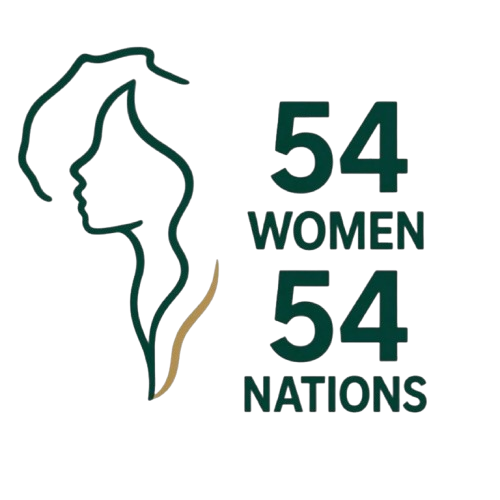West African Countries
West African women, across 16 nations like Nigeria, Ghana, and Senegal, have forged remarkable paths through history. Their exploits include Yaa Asantewaa’s 1900 Ashanti rebellion against British colonial rule and Funmilayo Ransome-Kuti’s 1940s tax protests in Nigeria, galvanizing independence movements. Strides shine in politics—Ellen Johnson Sirleaf, Africa’s first female president (Liberia, 2006-2018)—and business, with Folorunso Alakija, Nigeria’s richest woman, leading oil ventures. Their potential is vast: 58% of SMEs are women-owned, driving $150 billion in economic impact. From tech innovators in Lagos to Ghana’s shea butter cooperatives, they embody resilience, leveraging digital platforms and ECOWAS networks to scale entrepreneurship, education, and advocacy for gender equity in 2025.

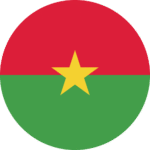








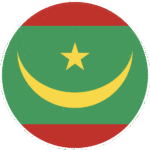


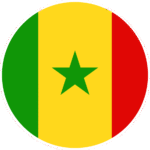

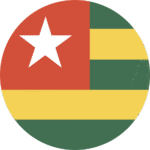
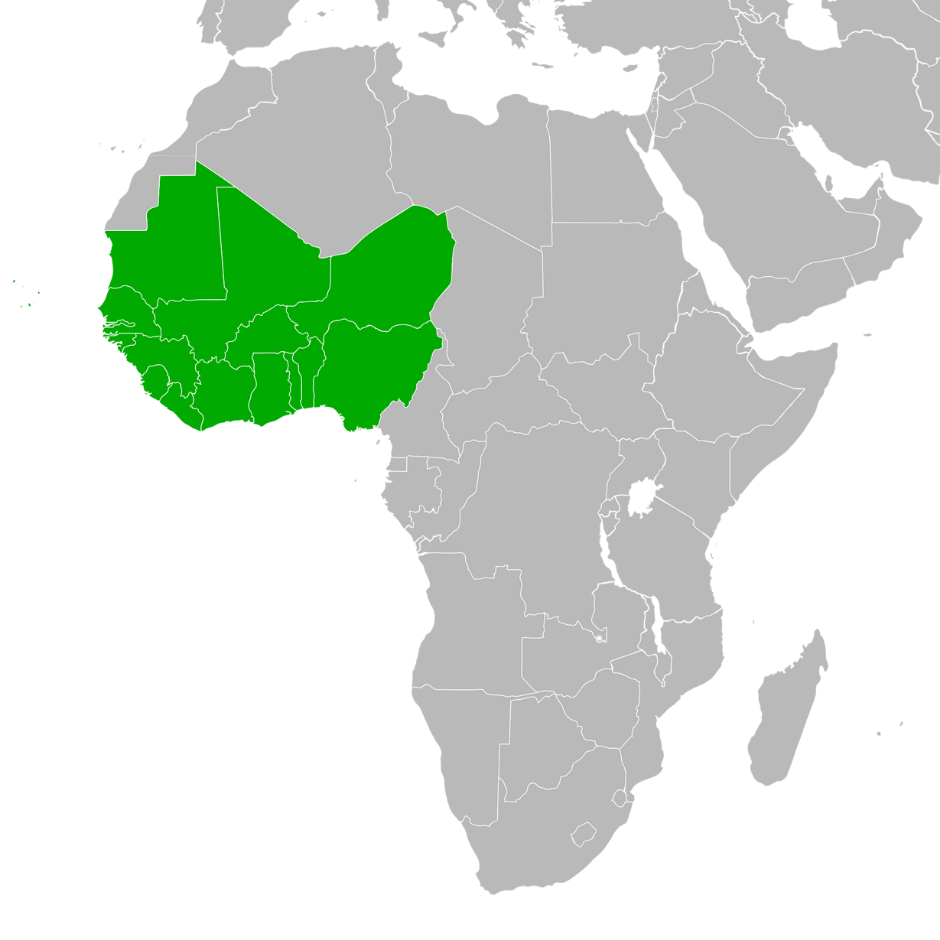
West African Countries
- Benin, Burkina Faso, Cabo Verde, Côte d'Ivoire, Gambia, Ghana, Guinea, Guinea-Bissau, Liberia, Mali, Mauritania, Niger, Nigeria, Senegal, Sierra Leo, Togo
Let us share the Uniqueness of Women from these West African Countries

Beninese women, rooted in the ancient Kingdom of Dahomey (modern Benin), have long defied norms as warriors, leaders, and innovators. Their exploits include the Dahomey Amazons—fierce all-female regiments formed in the 18th century—who conquered rivals and repelled French colonizers in 1892, embodying unmatched valor and discipline. Queen Mother Idia (15th century) led armies to secure Benin’s northern frontiers, earning the title “hidden Oba” for her strategic genius and cultural patronage, immortalized in bronze masks. Strides continue: Post-independence, women dominate markets, with 70% of informal traders fueling economies despite FGM and gender gaps. Their potential surges in 2025—via entrepreneurship in agribusiness and tech—poised to drive Benin’s $20B GDP, amplifying voices for equity and sustainable growth.
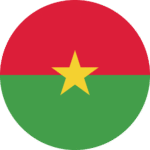 Burkinabé women, in Burkina Faso's resilient heart, have defied colonial shadows and post-independence upheavals, from pre-colonial economic stewards to independence mobilizers. Their exploits include Yaméogo Aïssata's leadership in the Women’s Union of Upper Volta, rallying for 1960 sovereignty against French rule. Strides surge in cooperatives like Awa's shea butter collectives, fostering financial autonomy amid instability, and 2020 gender quotas boosting parliamentary seats to 16.9%. Since the 1990s, they've claimed labor market autonomy, agricultural flexibility, and religious agency. Their potential blazes in 2025: Tech-savvy entrepreneurs and activists could shatter FGM barriers, drive $20B GDP growth, and lead regional empowerment, embodying unyielding optimism and communal strength.
Burkinabé women, in Burkina Faso's resilient heart, have defied colonial shadows and post-independence upheavals, from pre-colonial economic stewards to independence mobilizers. Their exploits include Yaméogo Aïssata's leadership in the Women’s Union of Upper Volta, rallying for 1960 sovereignty against French rule. Strides surge in cooperatives like Awa's shea butter collectives, fostering financial autonomy amid instability, and 2020 gender quotas boosting parliamentary seats to 16.9%. Since the 1990s, they've claimed labor market autonomy, agricultural flexibility, and religious agency. Their potential blazes in 2025: Tech-savvy entrepreneurs and activists could shatter FGM barriers, drive $20B GDP growth, and lead regional empowerment, embodying unyielding optimism and communal strength.

Cabo Verdean women, shaped by a Creole heritage on their Atlantic archipelago, have carved a legacy of resilience since colonial times. Their exploits include Cesária Évora, the "Barefoot Diva," whose global morna music elevated Cabo Verde’s cultural identity in the 1990s. Strides shine in politics, with women like Cristina Duarte, former Finance Minister, driving economic reforms, and a 2021 parliamentary gender quota securing 26% female representation. Women dominate fishing and tourism sectors, contributing to a $2.3B GDP. In 2025, their potential soars: tech-savvy entrepreneurs and diaspora networks could amplify sustainable tourism and renewable energy ventures, breaking educational barriers and embodying vibrant, innovative leadership for a small nation with global impact.

Ivorian women, in Côte d'Ivoire's vibrant mosaic, have defied colonial chains and post-independence strife, emerging as economic and political dynamos. Their exploits ignite with the 1949 Grand-Bassam march, led by Anne Marie Raggi and Mamie Faitai, demanding prisoner releases and igniting women's divisions in political parties against French rule. Strides surge post-1960: Kandia Camara as Education Minister since 2011, boosting literacy; Mariam Traoré, first female army general in 2017, shattering military barriers; and Kandjo Abibata, pioneering in tech innovation. Dominating cocoa cooperatives, they fuel 40% of exports amid gender quotas yielding 11% parliamentary seats. In 2025, their potential explodes: NGOs tackling maternal health and youth empowerment could unlock $10B GDP growth, embodying resilient innovation for equitable progress.

Gambian women, along the vibrant Gambia River, have long anchored economic life, innovating in agriculture and trade despite colonial constraints. Their exploits include Fenda Lawrence's 18th-century transatlantic entrepreneurship as a rice merchant and slave trader, defying exile to build wealth in Georgia. Strides blaze in politics and justice: Fatou Bensouda, ICC Chief Prosecutor since 2012, prosecuting global atrocities; Nyimasata Sanneh-Bojang's 1982 parliamentary breakthrough; and Maimuna and Fanta's uncontested local council wins in 2025, bridging divides. Entrepreneurs like Binta Jallow of CuT N Fit and market-savvy farmers accessing price info fuel growth. Their potential surges in 2025: With quotas and networks, they could unlock $1B GDP via tourism and agribusiness, embodying resilient leadership for equitable progress.

Ghanaian women, from ancient Akan matrilineal guardians to colonial-era agitators, have boldly shaped their nation's destiny. Their exploits ignite with Mabel Dove Danquah's 1954 parliamentary breakthrough as the first female MP, defying colonial patriarchy, and the 1948 Accra riots where women like Yaa Asantewaa-inspired activists protested economic injustices. Strides surge in 2025: Prof. Naana Jane Opoku-Agyemang as Africa's first female VP addressing the AU; Esther Cobbah's historic IPRA presidency as the first African; COP Lydia Yaako Donkor's INTERPOL milestone; and business icons like Joana Gyan Cudjoe revolutionizing mining. With 58% women-owned SMEs fueling $150B impact, their potential explodes: Tech innovators and policy shapers could unlock $50B GDP by 2030, embodying resilient leadership for equitable, prosperous futures.

Guinean women, in the resilient heart of West Africa, have defied colonial oppression and post-independence challenges, emerging as vital forces in nation-building. Their exploits ignite with the 1950s mobilizations under Ahmed Sékou Touré's PDG, where women like N’Guèmah Bangoura led anti-colonial strikes and rallies, enduring arrests to secure 1958 independence. Strides surged as Touré appointed the first female ministers in Africa, boosting girls' education to near 50% enrollment and integrating women into party structures. Today, they mediate rural conflicts via USAID's C2P2 project, fostering peace in Dinguiraye. Their potential blazes in 2025: Overcoming barriers like FGM and low school completion, empowered entrepreneurs could unlock $5B GDP growth through agribusiness and mining cooperatives, embodying unyielding optimism for equitable futures.
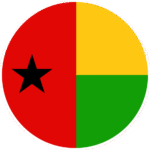
Guinean-Bissau women, in a nation forged through 500 years of Portuguese oppression, have been unyielding architects of freedom. Their exploits blazed in the 1963-1974 liberation war, where PAIGC fighters like Titina Silá—Africa's first female combat commander—smuggled ammunition in baskets, spied for guerrillas, and led assaults, embodying the cry "There is no fight without the women." Strides post-independence include legislative wins: bans on child/forced marriage, easier divorce, and 2011 UN Resolution 1325's National Action Plan boosting mediation roles. As breadwinners in agriculture and markets, they drive 51% of the population's resilience amid low literacy (44%). Their potential surges in 2025: Through Voz di Paz networks and anti-FGM campaigns, they could shatter barriers, unlocking $1B GDP via empowered agribusiness and peacebuilding, fueling equitable futures.

Liberian women, forged in civil war's fire (1989-2003), led nonviolent exploits through the Women of Liberia Mass Action for Peace, uniting faiths in protests, sex strikes, and Accra sit-ins to force the 2003 Comprehensive Peace Agreement. Key figures like Leymah Gbowee, Nobel Peace Prize winner (2011), and Asatu Bah-Kenneth mediated amid peril, ending conflict and inspiring global activism. Strides include Ellen Johnson Sirleaf's historic presidency (2006-2018), Africa's first elected female head, rebuilding infrastructure and earning Nobel honors. Ruth Sando Perry's interim leadership (1996) disarmed rebels. In 2025, trainings boost 11% local government roles, with potential in mediation and politics unlocking $5B GDP growth through empowered governance.

Malian women, rooted in the ancient Mali Empire, have defied patriarchal and colonial constraints, shaping resilience through history. Their exploits include Fatoumata Coulibaly’s 1990s radio activism, amplifying voices against oppression during Mali’s democratic transition. Strides shine with Aoua Kéita, Africa’s first female parliamentarian in 1960, advocating labor rights, and Oumou Sall Seck, Mali’s first female mayor, pioneering local governance. Women dominate agriculture, driving 70% of food production despite conflict and 33% literacy rates. In 2025, their potential surges: tech-driven cooperatives and peacebuilding roles, like those in UN-backed programs, could unlock $10B GDP growth, shattering FGM and education barriers to embody unyielding leadership for equitable progress.
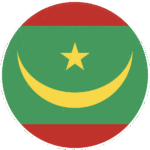
Mauritanian women, rooted in nomadic traditions and colonial legacies, wield quiet yet profound influence, initiating divorces, leading households, and speaking publicly in a Muslim-majority society. Their exploits shine through Haratine women's 2011-2015 anti-slavery campaigns, amplifying visibility and rights against entrenched bondage. Strides include Dr. Jemila Bouka's pioneering military surgery and hospital founding, and Berdis Muhammed's journey from rural poverty to global rice exporter. Electoral quotas drive 26% female parliamentarians, banning child marriage and FGM. In 2025, their potential surges: Closing economic gaps could boost GDP 19%, fueling tech, agribusiness, and peacebuilding, embodying resilient leadership for progress.
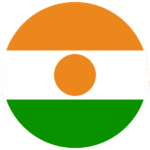
Nigerien women, in the Sahel's resilient expanse, have defied colonial invasions and modern insurgencies, embodying unyielding fortitude. Their exploits peak with Queen Sarraounia Mangou's 1899 epic stand against French forces at Lougou, rallying warriors in a fierce, legendary battle immortalized in literature and film. Strides advance through Kané Aïchatou Boulama, Niger's first female minister (1980s), pioneering women's rights amid military rule, and contemporary activists like Hassia Issa, leading reconstruction post-2023 coup by donating to anti-colonial efforts. Despite 76% child marriage rates and low parliamentary seats, they dominate agriculture, fueling 70% of food production. In 2025, their potential ignites: Education and tech initiatives could shatter barriers, unlocking $5B GDP growth through empowered entrepreneurship and peacebuilding.

Women in Nigeria continue to make remarkable strides across all sectors — from business and politics to science, arts, and community service. They are catalysts of growth, driving innovation and empowering others through education, entrepreneurship, and advocacy. Nigerian women have shattered glass ceilings, leading corporations, serving in government, and excelling in global platforms. At the grassroots, they champion community development by promoting health, literacy, and financial inclusion. Their resilience fuels progress in rural and urban areas alike, turning challenges into opportunities. From farmers and teachers to technologists and creators, Nigerian women embody strength, vision, and unity — shaping a more inclusive and prosperous society through their relentless pursuit of excellence and empowerment of others.
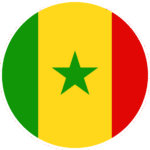
Women in Senegal stand as pillars of resilience, leadership, and progress. From bustling markets to government offices, they actively shape the nation’s social and economic landscape. Senegalese women have made impressive strides in politics, education, and entrepreneurship, breaking barriers and inspiring future generations. Many lead community initiatives that promote health care, girls’ education, and sustainable agriculture, strengthening local economies and family welfare. Through cultural preservation and creative expression, they uphold national identity while driving modernization. Their determination, unity, and innovation continue to transform communities — proving that women are central to Senegal’s development story. With courage and vision, Senegalese women are building a future rooted in equality, empowerment, and collective growth for their people and nation.

Women in Sierra Leone are powerful agents of change, resilience, and progress. From rebuilding communities after conflict to leading in education, healthcare, and entrepreneurship, they continue to shape the nation’s development story. Sierra Leonean women have made bold strides in governance, peacebuilding, and advocacy for gender equality. In rural and urban areas alike, they drive community initiatives that empower young girls, promote health awareness, and support small-scale businesses. Their creativity and determination uplift families and strengthen local economies. Through hard work and unity, they transform challenges into opportunities, proving that women are the backbone of Sierra Leone’s growth. With courage and vision, they continue to inspire a new generation of leaders committed to peace, progress, and prosperity.

Women in Togo have long played a central role in the nation’s progress and identity. From the days of independence movements, where courageous women stood beside men demanding freedom, to modern times, their impact remains profound. Togolese women have excelled in trade, education, and public service, building a legacy of resilience and achievement. Known for their entrepreneurial spirit, market women helped sustain the economy during challenging periods, while educators and activists advanced literacy and social justice. Today, women in Togo continue to break barriers in politics, science, and business, shaping national policies and driving innovation. Their unwavering strength, leadership, and commitment to equality have been vital to Togo’s growth, proving that the nation’s advancement is inseparable from women’s empowerment.
Fun Facts about West Africa
The women of West Africa, spanning countries like Benin, Burkina Faso, Cabo Verde, Côte d'Ivoire, Gambia, Ghana, Guinea, Guinea-Bissau, Liberia, Mali, Mauritania, Niger, Nigeria, Senegal, Sierra Leo, Togo embody resilience, strength, and diversity.
People
West African Women
Women Owned Businesses
Women Community Projects
How We Deliver on Africa’s Vision
| AU Aspiration | What It Means | How We Deliver It |
|---|---|---|
| Aspiration 1: A prosperous Africa | Inclusive, sustainable economic growth | We provide support, training, and mentorship for teams to enable them to launch concrete projects, from maternal health initiatives and digital finance training to climate action and small business development. |
| Aspiration 3: Good governance and people-driven development | Women and citizens shaping decisions at every level | We back our leaders to lead national teams, build community coalitions, and push for governance that reflects local realities and works to enhance sustainable growth. |
| Aspiration 5: Strong cultural identity, common heritage, and shared values | African heritage valued at home and respected abroad | We amplify both our leaders and their team’s work through media, connect local impact to global networks, and help reshape Africa’s image on the world stage, on African terms. |
If you Believe it, you can Achieve it

